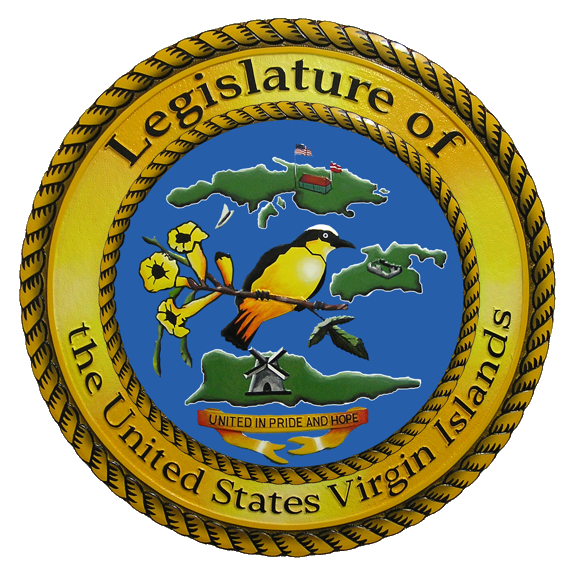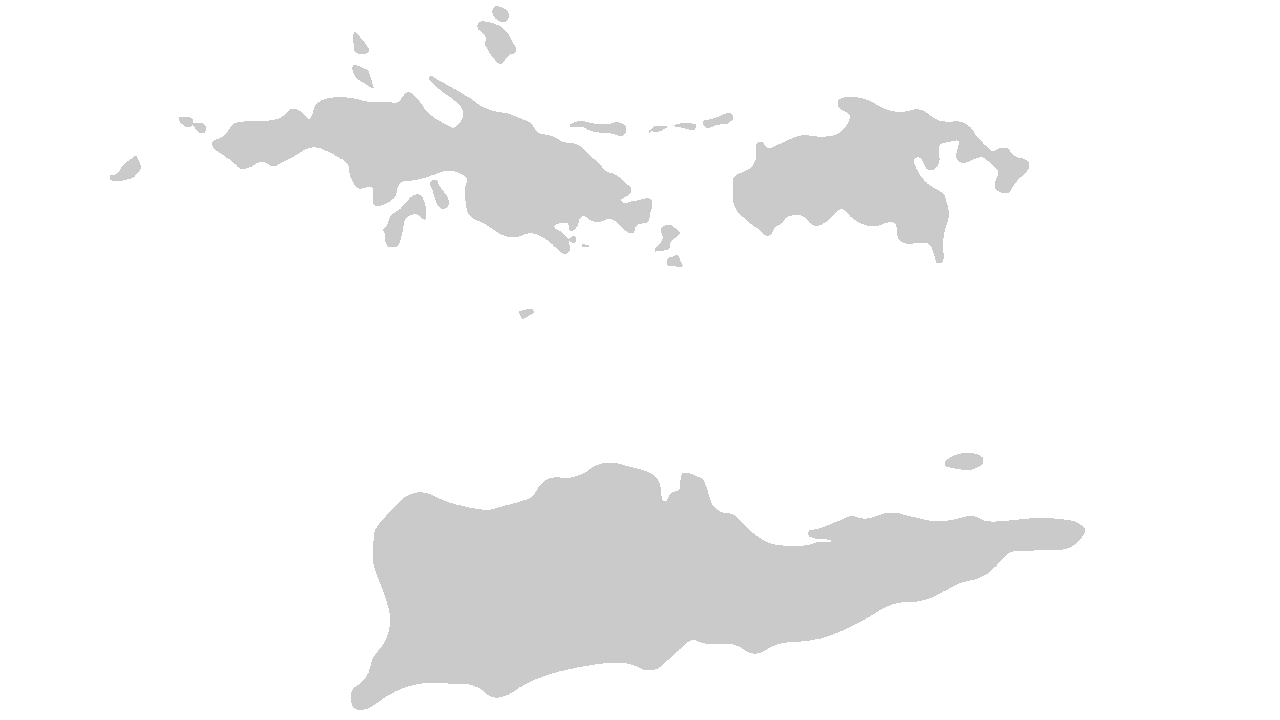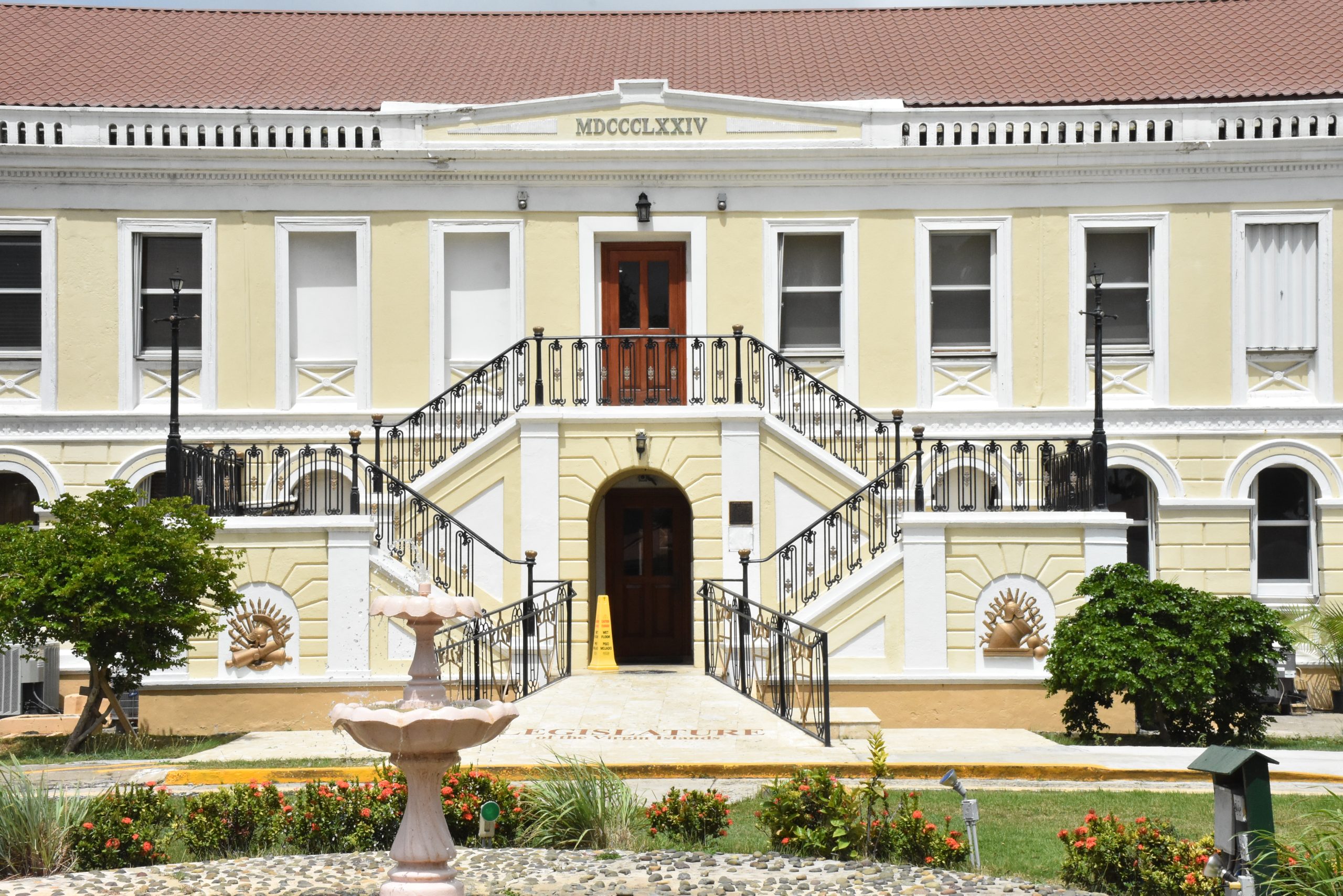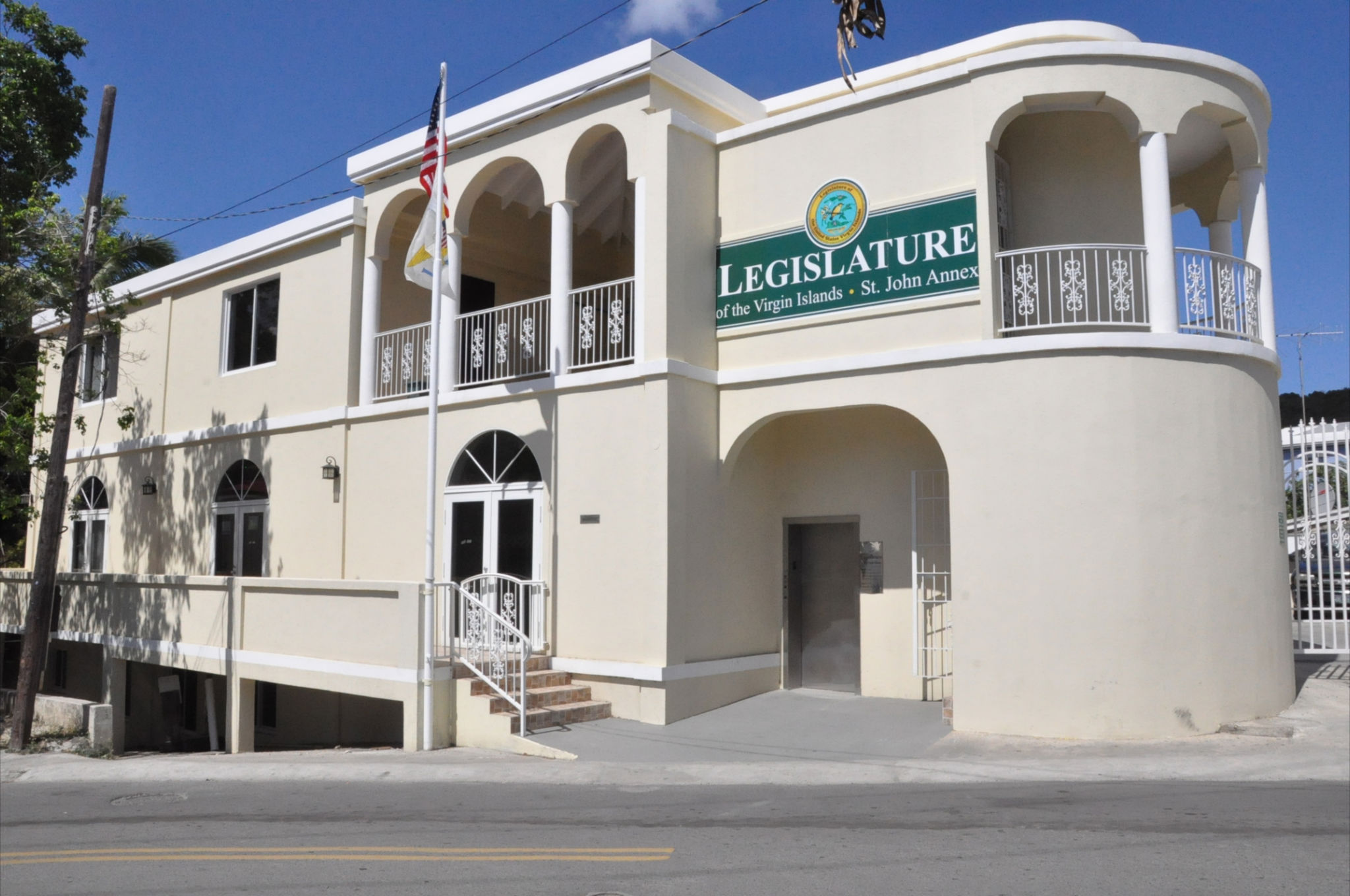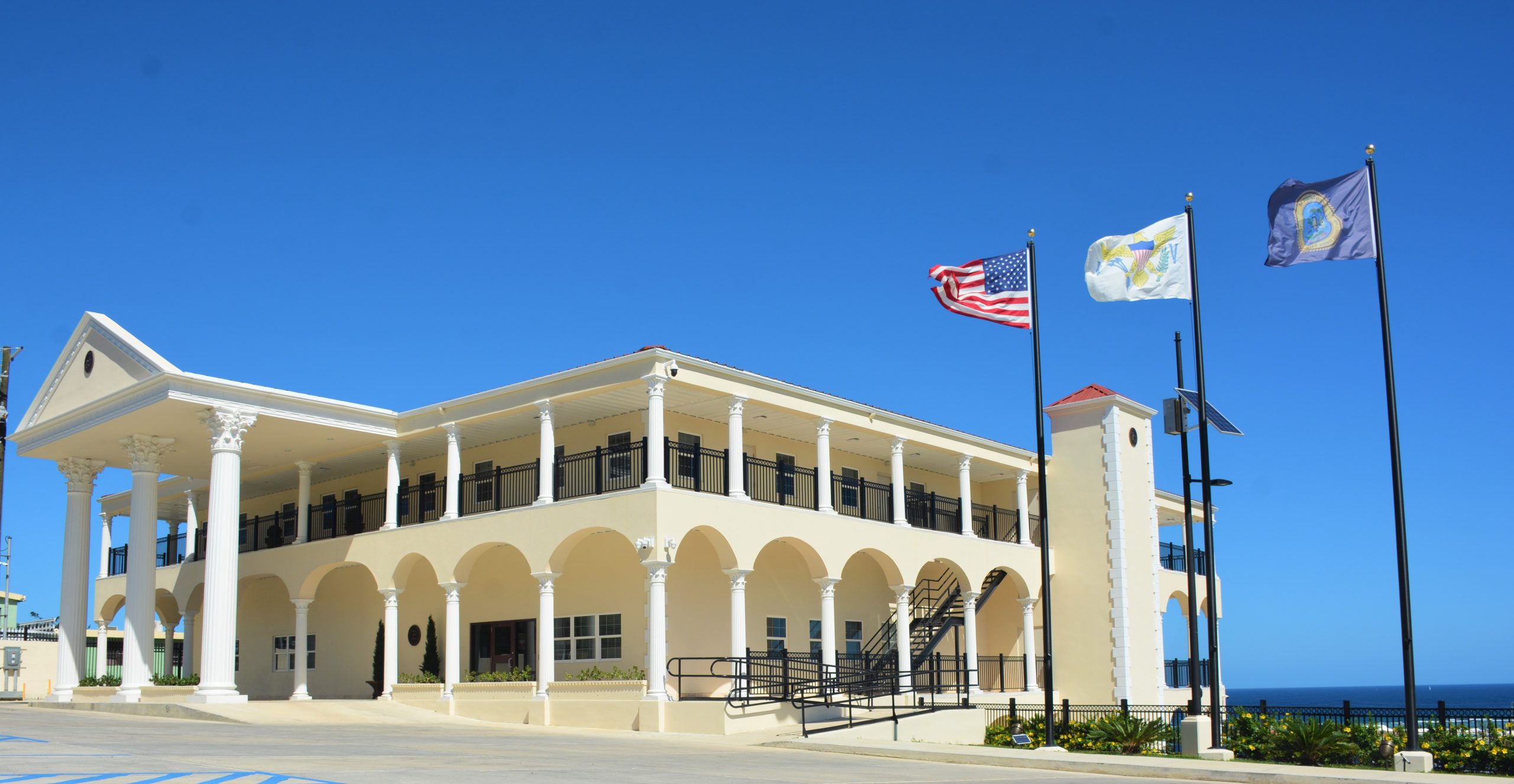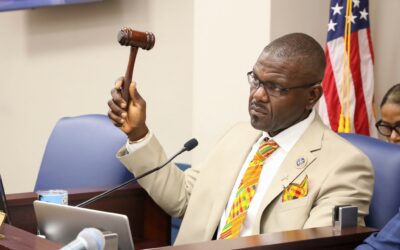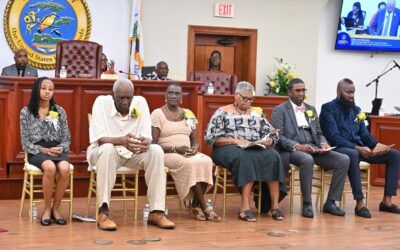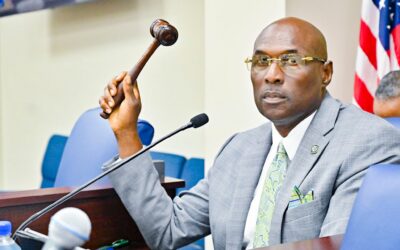LAWMAKERS EXAMINE HOUSING CRISIS, HOMELESSNESS, AND INSURANCE MARKET CHALLENGES IN THE VIRGIN ISLANDS
Published: Sep 30, 2024
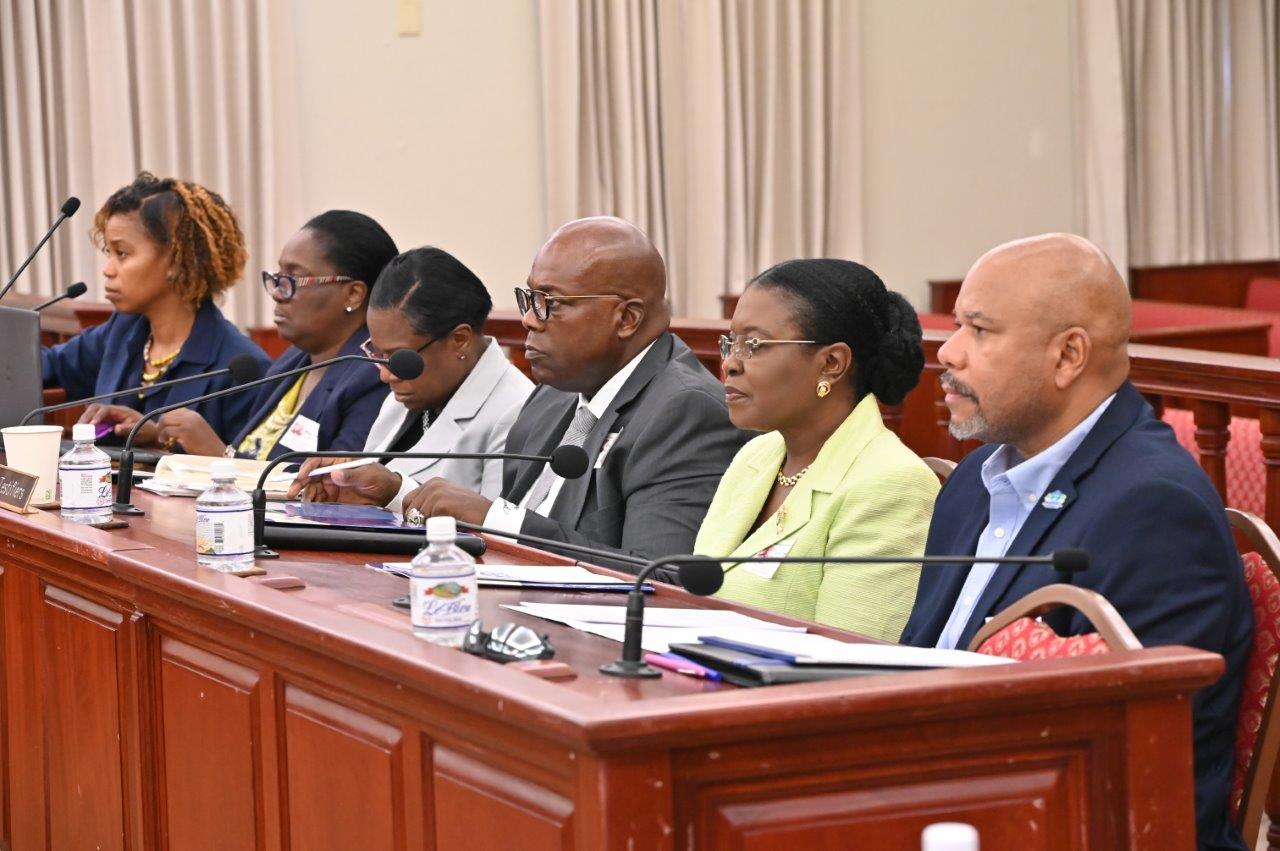
LAWMAKERS EXAMINE HOUSING CRISIS, HOMELESSNESS, AND INSURANCE MARKET CHALLENGES IN THE VIRGIN ISLANDS
ST. THOMAS – The Committee on Housing, Transportation, and Telecommunications, chaired by Senator Marvin A. Blyden, convened at the Capitol Building to discuss pressing housing issues. The Virgin Islands Housing Authority (VIHA) provided testimony on operations, finances, human resources, and the status of affordable housing initiatives.
Senator Blyden highlighted the ongoing housing crisis, noting that rising costs have made homeownership increasingly unattainable for many Virgin Islanders. “In this and other hearings, we aim to explore solutions to make housing more affordable and assist families in need,” he stated.
Dwayne Alexander, Executive Director of VIHA, reported that the agency oversees 2,536 housing units across 21 developments but anticipates a reduction to approximately 2,000 units due to ongoing demolitions and redevelopment. VIHA aims to revitalize or construct 300 new units annually to meet the demand for affordable housing. Since the 2017 hurricanes, the need for over $200 million in capital improvements has grown, further complicating recovery efforts. Current projects include rehabilitating 354 units and developing 144 new senior housing units.
In 2025, VIHA plans to improve the Housing Choice Voucher Program through enhanced partnerships and community engagement. Alexander emphasized the importance of collaboration with the University of the Virgin Islands to attract landlords and enhance program visibility, while expanded orientation sessions for landlords aim to streamline leasing processes.
Senator Blyden inquired about the $100 million allocation for redevelopment. VIHA’s Chief Operating Officer, Lydia Pelle, indicated that $70 million will focus on redevelopment, with the remainder allocated for necessary repairs. VIHA has also seen an increase in operational efficiency, successfully opening 7,781 work orders in 2024—2,600 more than last year.
The meeting also addressed housing instability, with Andrea Shillingford from Catholic Charities reporting a concerning rise in homelessness in the Virgin Islands. Currently, 318 individuals face homelessness, including 207 on St. Thomas. The shift from long-term leases to short-term rentals has exacerbated the housing shortage. Commissioner Averil George of the Department of Human Services recommended creating a coordinated entry system to improve data collection and enhance support for the homeless population.
Dan Derima, Chair of the VI Continuum of Care Council (CoC) on Homelessness, highlights the CoC’s strengths, including strong momentum, committed members, regular participation from various agencies, and a newly elected Officer Board. They’ve reestablished subcommittees, used Microsoft Teams for organization, and received funding to hire staff for the Coordinated Entry System (CES). They are also finalizing non-profit incorporation and building their online presence, united in their goal to end homelessness in the USVI.
However, the CoC faces challenges: they are not in compliance with HUD’s CES requirements, limiting access to additional funding, and currently operate with volunteers. While non-profit status and staff hiring are in progress, administrative processes and data engagement from all service providers remain areas for improvement. Efforts are underway to enhance outreach, collaboration, and training.
Lastly, policymakers received an update on the status of the property insurance market, which reveals ongoing challenges, particularly in disaster-prone areas like the Virgin Islands. Limited reinsurance capacity and rising costs have led to higher premiums and reduced coverage availability, impacting homeowners and threatening affordability. Attorney Glendina Matthew, Director of the Division of Banking, Insurance, and Financial Regulation within the Office of the Lieutenant Governor indicated that due to catastrophic events like Hurricanes Irma and Maria, reinsurers have been limiting or declining the risks they cover, which has affected insurers’ ability to offer new and renewal coverage. This lack of reinsurance capacity impacts both consumers and insurers in the Virgin Islands, where insurers rely on reinsurance treaties to cover risks. The 30% probable maximum loss requirement, implemented after Hurricane Marilyn, mandates that insurers maintain reinsurance on 30% of property and casualty coverage to protect consumers during catastrophes. However, with rising reinsurance costs and limited capacity, maintaining this coverage is challenging. In late 2021 and early 2022, the Virgin Islands experienced rising premiums and limited insurance availability, like the crises in Florida and California. To prevent a crisis, the Division considered measures to stabilize the local insurance market and maintain homeowner coverage.
Moreover, the local insurance industry remains in a fragile state, especially as the Virgin Islands enter the peak of hurricane season, with NOAA predicting an above-normal season. However, there are signs of optimism, with some stabilization in the market. According to a recent Fitch Wire article, Fitch Ratings has adjusted its global reinsurance sector outlook to “neutral” from “improving,” signaling changes in the pricing cycle. According to Matthew, the insurance industry’s feedback and the Federal Reserve’s interest rate cuts predict a softening market, resulting in stable or declining rates and more accessible insurance coverage. However, weather conditions will still play a crucial role in determining the market’s future.
Senators present included Marvin Blyden, Novelle E. Francis, Jr., Dwayne M. DeGraff, Angel Bolques, Jr., Javan E. James, Sr., Ray Fonseca, Diane T. Capehart, and Carla J. Joseph.
The Division of Public Affairs provides accurate information about legislative proceedings and events at the Virgin Islands Legislature.

Press Contact: Africah N.T. Harrigan
Email: aharrigan@legvi.org
###
Related Content
COMMITTEE RECEIVES UPDATES FROM VIFEMS AND POLICE DEPARTMENT
ST. CROIX, VI – The 36th Legislature of the Virgin Islands’ Committee on Homeland Security, Justice, and Public Safety, led by Senator Clifford A. Joseph, Sr, met in the Frits E. Lawaetz Legislative Conference Room. Lawmakers received updates from the Virgin Islands...
COMMITTEE HOSTS PERMA PLAQUE CEREMONY FOR SEVERAL HONOREES
ST. THOMAS, VI - The Legislature of the Virgin Islands hosted a Permanent Plaque Ceremony at Earle B. Ottley Legislative Hall to formally recognize and commemorate individuals whose service, leadership, and contributions have left a lasting impact on the...
COMMITTEE VETS LEASE AGREEMENTS, MEASURE TO REDESIGN FUNDING SOURCES FOR SEVERAL ENTITES, MODIFY RENEWAL PROVISIONS FOR INSURANCE PRODUCER LICENSES, ESTABLISH “IMPAIRED DRIVING AND HIGHWAY SOBRIETY CHECKPOINT PROGRAM SAFETY FUND”
ST. CROIX, VI - The Committee on Budget, Appropriations, and Finance, led by Senator Novelle E. Francis, Jr. met in the Earle B. Ottley Legislative Hall. Lawmakers considered various lease agreements for the island of St. Thomas. Additionally, lawmakers vetted...
